
Conjugation Wake 🔸 Verb in all tenses and forms Conjugate in past, present and future
The imperative mood is a grammatical mood that forms a command or request.. An example of a verb used in the imperative mood is the English phrase "Go." Such imperatives imply a second-person subject (you), but some other languages also have first- and third-person imperatives, with the meaning of "let's (do something)" or "let them (do something)" (the forms may alternatively be called.
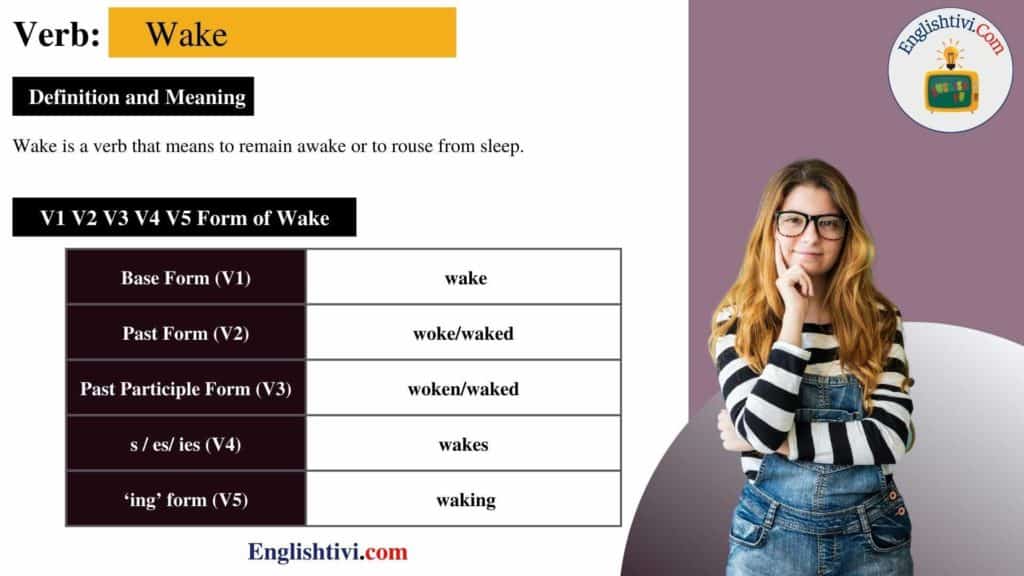
Wake V1 V2 V3 V4 V5 Base Form, Past Simple, Past Participle Form of Wake Englishtivi
1 a : to be or remain awake b archaic : to remain awake on watch especially over a corpse c obsolete : to stay up late in revelry 2 : awake, wake up They woke early. transitive verb 1 : to stand watch over (someone or something) especially : to hold a wake over 2 a : to rouse from or as if from sleep : awake, wake up
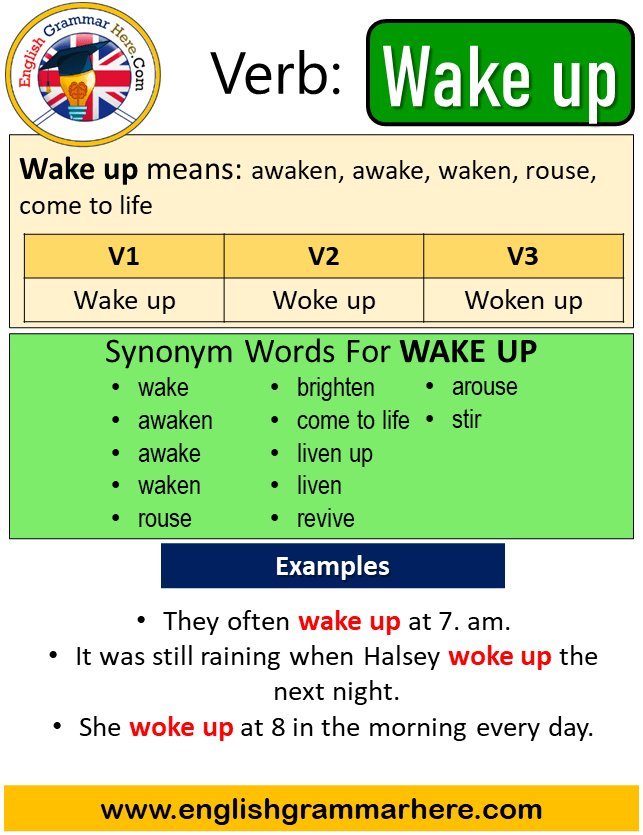
Wake up Past Simple, Simple Past Tense of Wake up, Past Participle, V1 V2 V3 Form Of Wake up
Definition of 'wake' Word Frequency wake (weɪk ) Word forms: plural, 3rd person singular present tense wakes , present participle waking , past tense woke , past participle woken language note: The form waked is used in American English for the past tense. 1. verb

Awake Past Simple, Simple Past Tense of Awake Past Participle, V1 V2 V3 Form Of Aw… English
Leave a Comment The past tense of WAKE is (SENSES 1, 2, 3, 5) WOKE OR (US, OR ENGLISH DIALECTAL; ARCHAIC ELSEWHERE (SENSES 1, 2, 3, 5) (SENSE 4) WAKED. See all forms of the verb WAKE with easy examples.
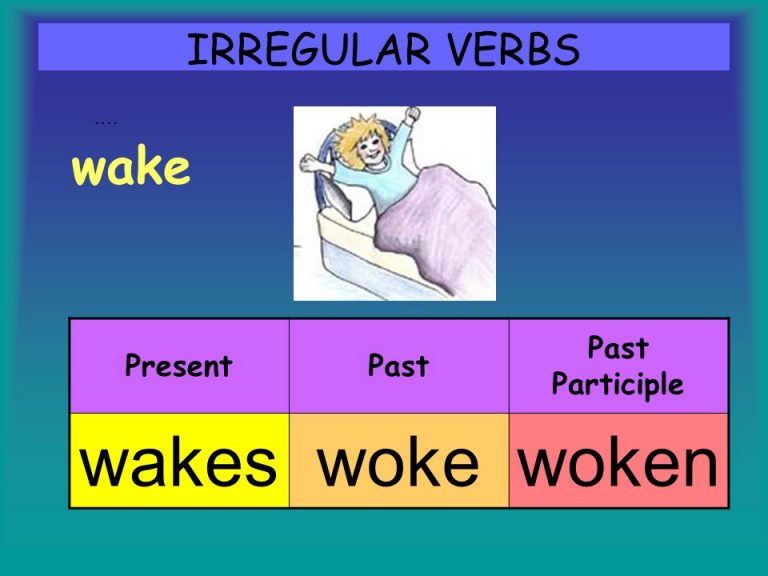
IRREGULAR VERBS …. wake Present Past Past Participle wakes woke woken Yapay Zeka ve Muhteşem Beyin
Conjugation of wake - English verb | PONS Verb Table for wake Continuous tenses Conditional Imperative Impersonal Simple tenses Present Past Present Perfect Past Perfect Will -Future Going to -Future Future Perfect Return to the dictionary Top of page Found an error? We appreciate your feedback. Click here! Continuous tenses Present Past
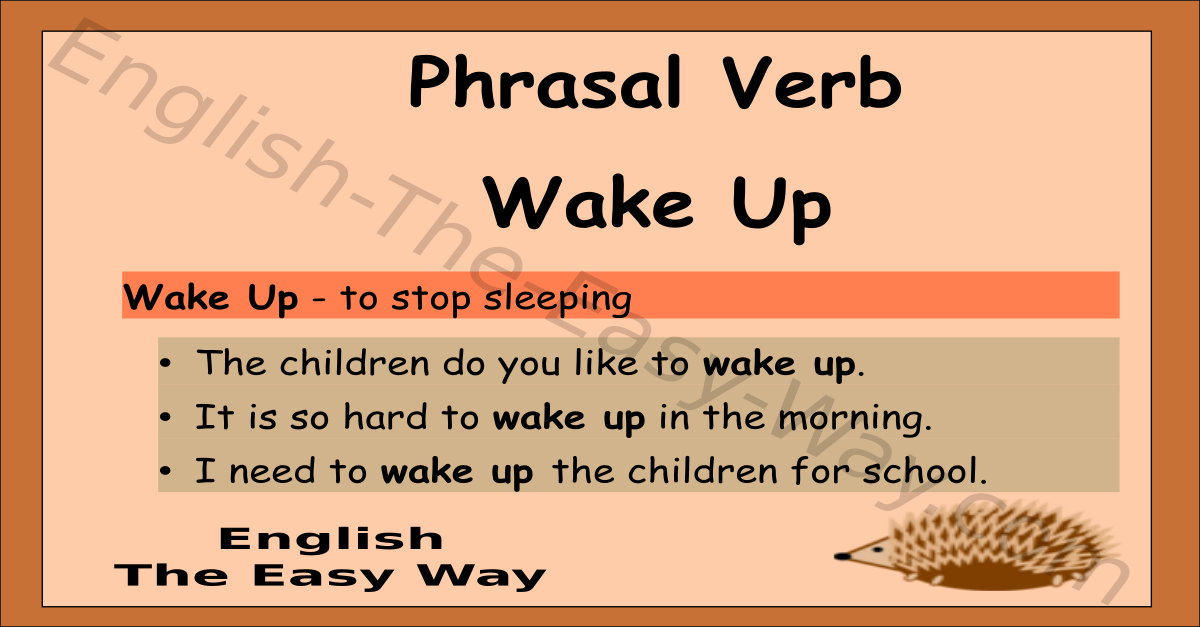
Wake Up Phrasal Verbs English The Easy Way
Grammar Reference Irregular Verbs List Definition: To Wake Irregular verb: To Wake Verb conjugation: Wake - Woke - Woken Meaning of 'To Wake' To stop sleeping and become conscious To make somebody stop sleeping Conjugation of verb 'Wake' Irregular Verbs Following a Similar Pattern Verbs like: Subscribe to Ad-Free Browsing
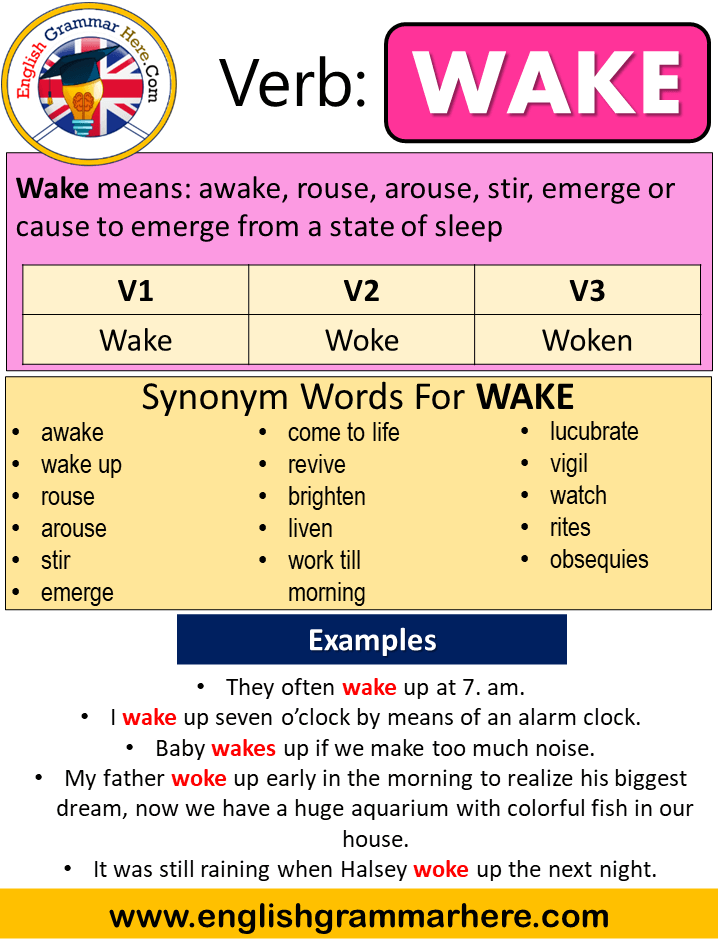
Wake Past Simple, Simple Past Tense of Wake, Past Participle, V1 V2 V3 Form Of Wake English
Answer The past tense of wake is woke or waked . The third-person singular simple present indicative form of wake is wakes . The present participle of wake is waking . The past participle of wake is woken or waked . Find more words! wake Similar Words awakened wakened roused awoke awaked awoken aroused stirred arose arisen bestirred woke up
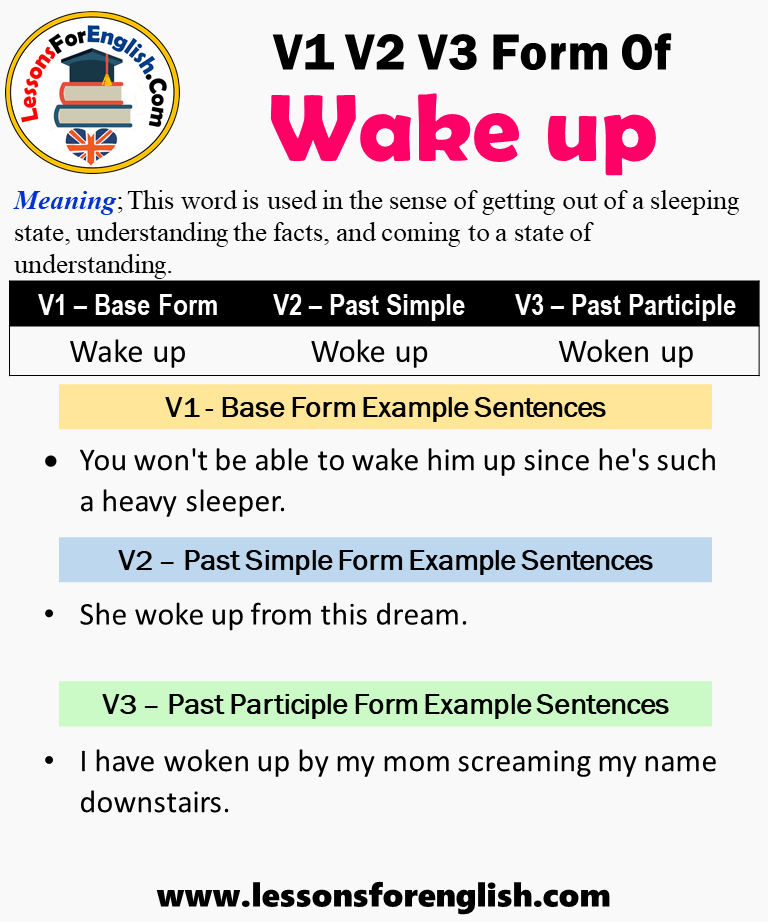
Past Tense Of Wake up, Past Participle Form of Wake up, Wake up Woke up Woken up V1 V2 V3
Verb Tenses Past simple — wake in past simple woke, waked (V2) . Future simple — wake in future simple is wake (will + V1) . Present Perfect — wake in present perfect tense is woken, waked (have/has + V3) . Past Perfect — wake in past perfect tense is woken, waked (had + V3) . wake regular or irregular verb?
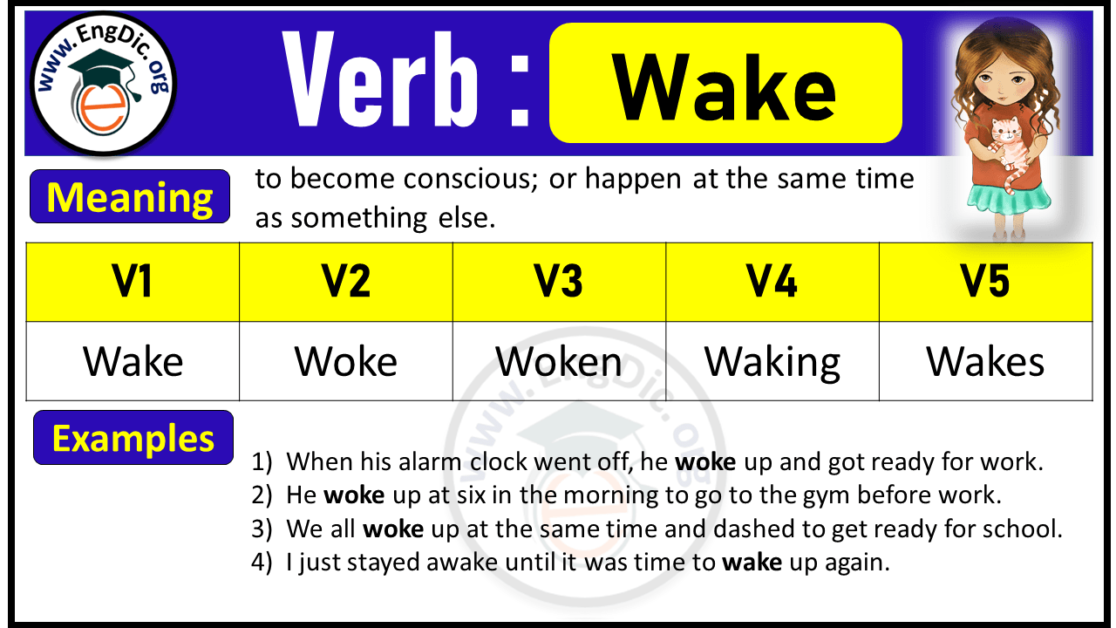
Wake past participle Archives EngDic
Wake means: awake, rouse, arouse, stir, emerge or cause to emerge from a state of sleep Synonym Words For WAKE awake wake up rouse arouse stir emerge come to life revive brighten liven work till morning lucubrate vigil watch rites obsequies Example Sentences with Wake, Woke, Woken V1 V2 V3 Advertisements They often wake up at 7. am.
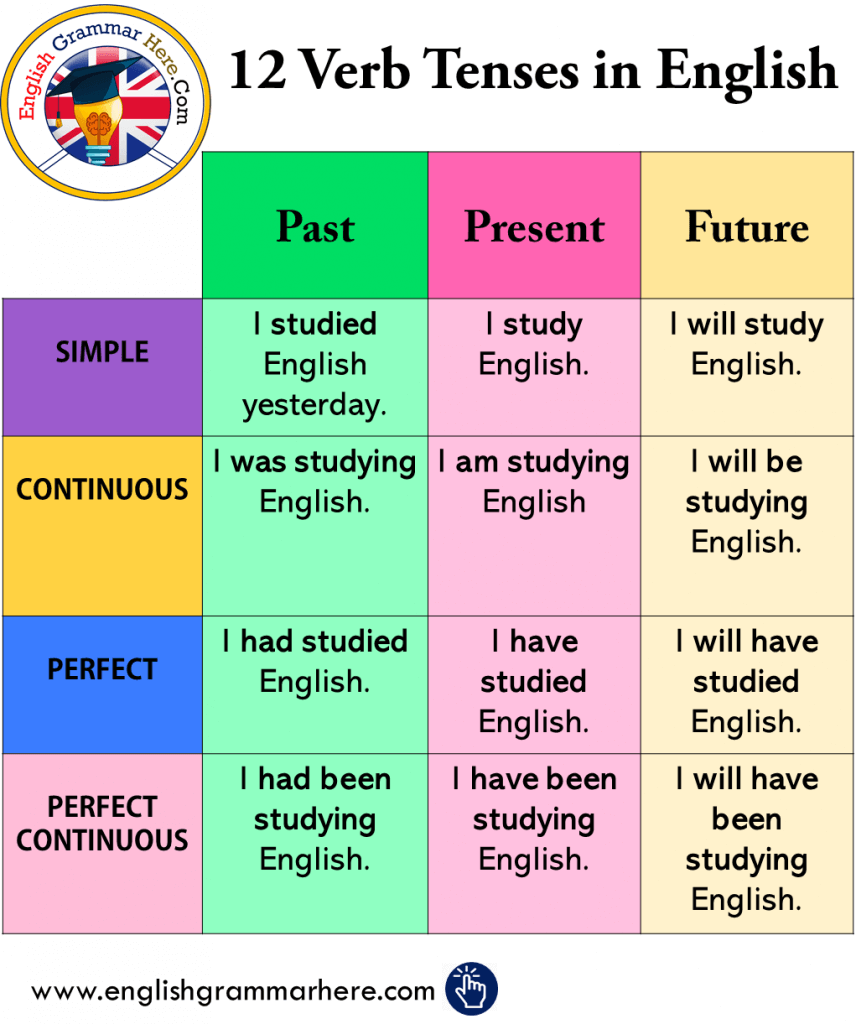
Tenses Archives English Grammar Here
past participle: (to) wake waking waked definition in Spanish in French in Italian Indicative Perfect tenses Continuous (progressive) and emphatic tenses Compound continuous (progressive) tenses Conditional Imperative Subjunctive *Blue letters in conjugations are irregular forms. ( example)

Wake V1 V2 V3 V4 V5 , Past Tense, Past Participle Form of Wake EnglishAwesome
The Verb "Wake" in English Conjugation of "To Wake" The verb "wake" is an irregular verb. (This means that "wake" does not form its simple past tense or its past participle by adding "-ed" or "-d" to the base form.) The Five Forms of "To Wake" "To Wake" in All the Tenses
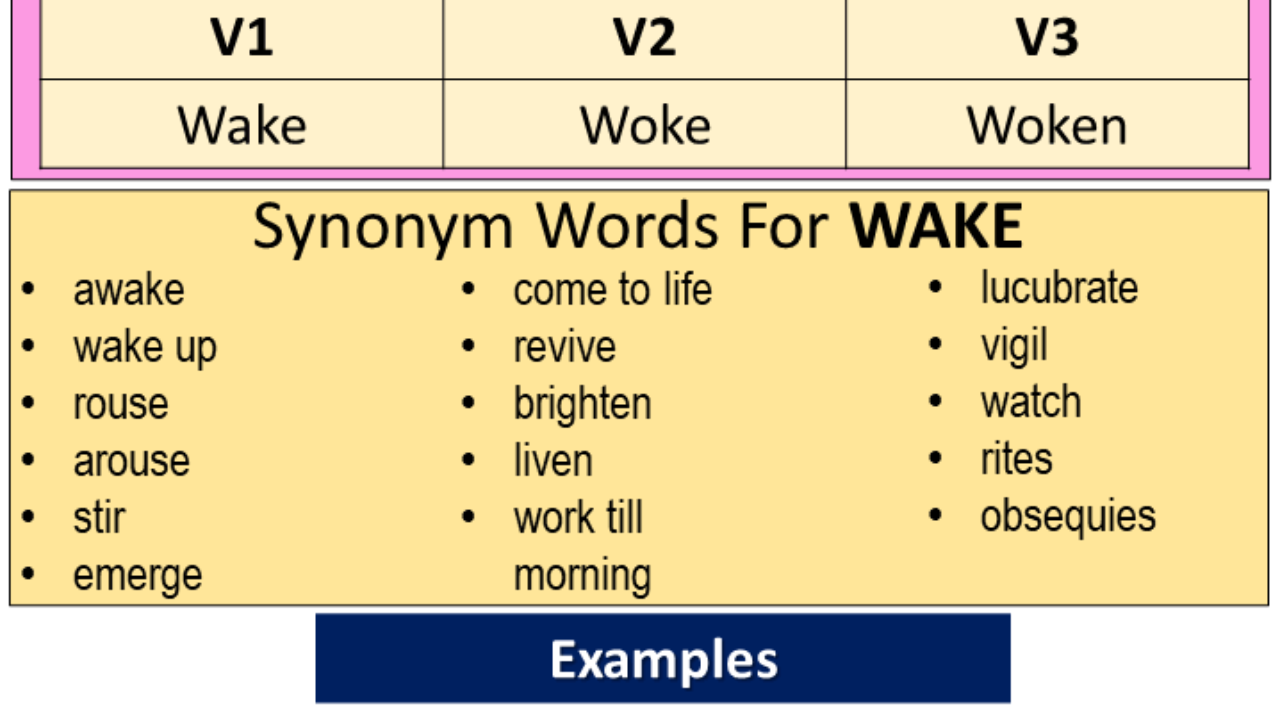
V1 V2 V3 Present Tense Past Tense Past Participle V1 V2 V3 V4 V5 Images
'to wake' conjugation - English verbs conjugated in all tenses with the bab.la verb conjugator. bab.la - Online dictionaries, vocabulary, conjugation, grammar. share person; outlined_flag arrow. Past perfect continuous. I. had been waking. you. had been waking. he/she/it. had been waking. we.
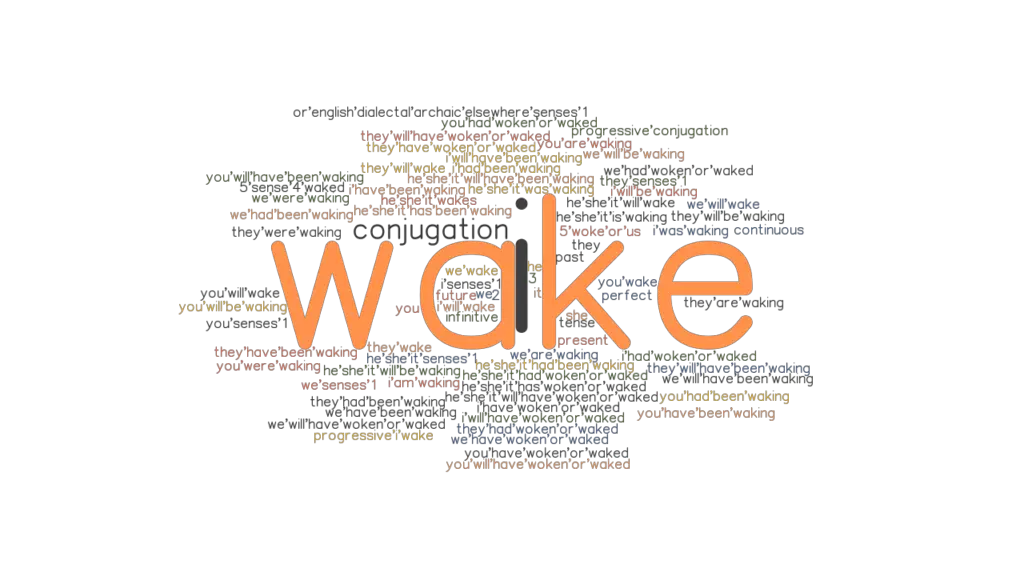
Wake Past Tense Verb Forms, Conjugate WAKE
I was waking. You/We/They were waking. Past Perfect Tense He/She/It had woken or waked. I had woken or waked. You/We/They had woken or waked. Past Perfect Continuous Tense He/She/It had been waking. I had been waking. You/We/They had been waking. Simple Future Tense He/She/It will/shall wake.
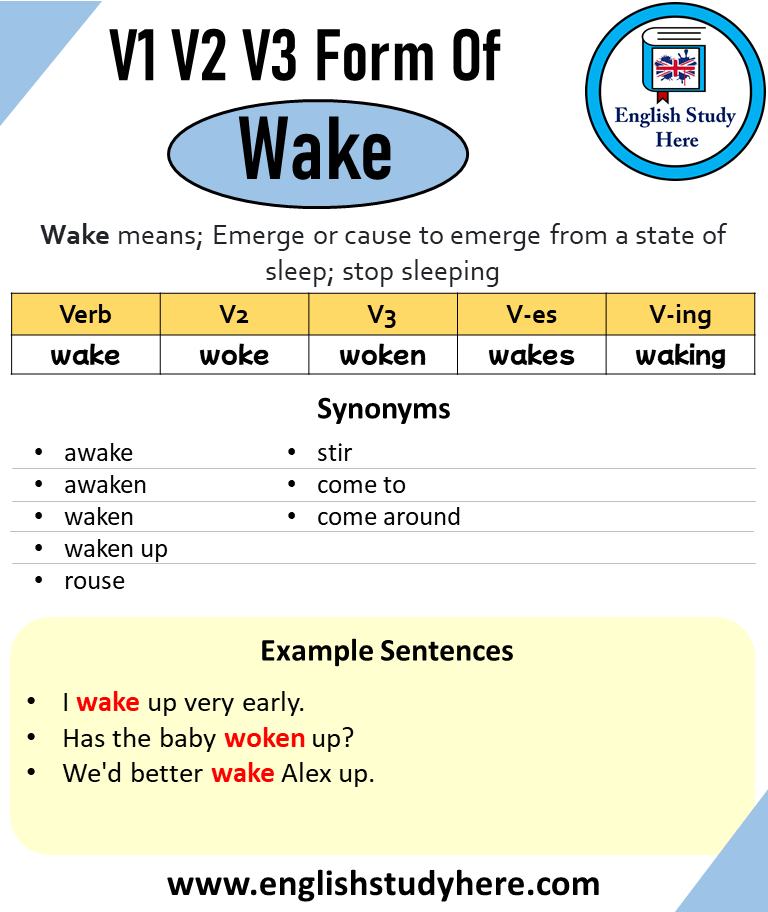
Past Tense of Wake, Past Participle of Wake, V1 V2 V3 V4 V5 Form of Wake English Study Here
Woken Woken is the past participle of the word wake. Wake verb forms V1 V2 V3 V4 Conjugation of Wake Simple / Indefinite Present Tense I wake up early. He/She/It wakes up early. You/We/They wake up early. Simple Past Tense I woke up early. He/She/It woke up early. You/We/They woke up early. Simple Future Tense I will/shall wake up early.
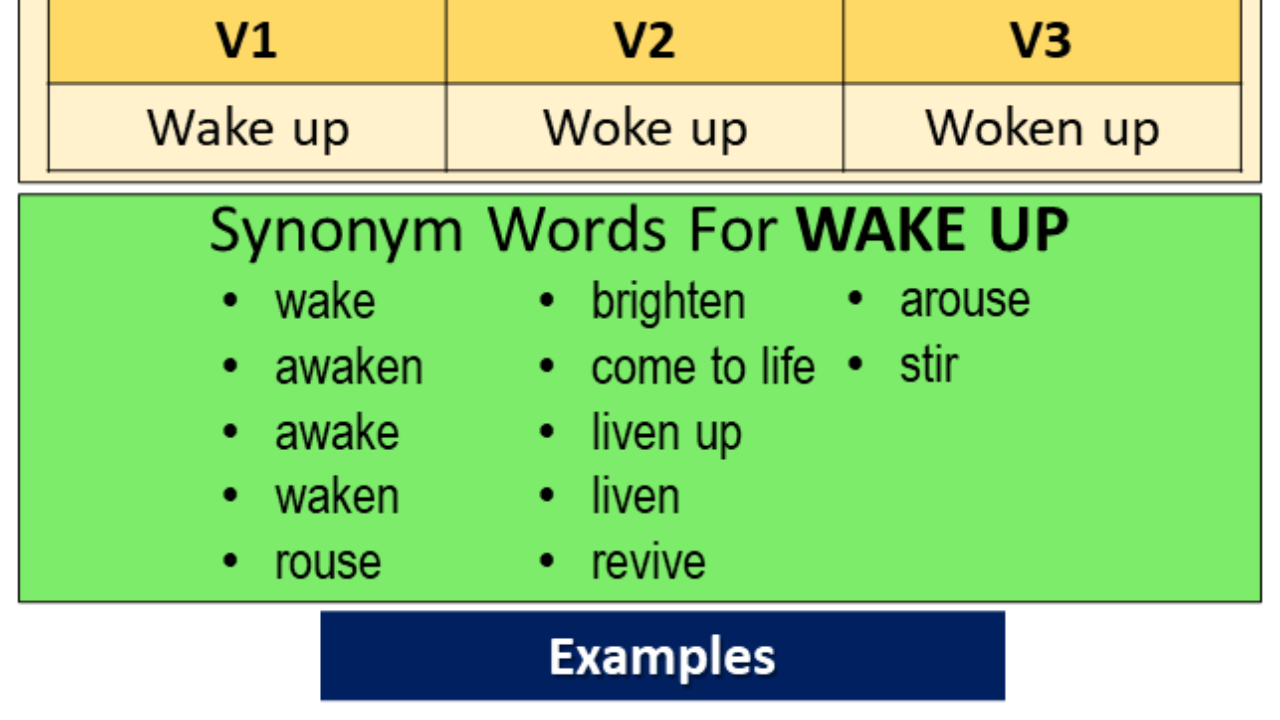
Wake Past Participle Leandroctx
Tenses of 'wake' Verb forms of to wake.. 1. Wake is in the present tense: She went upstairs to wake Milton.. 2. Wakes is the third-person present singular: Henry wakes each morning at the same exact time, 7:36 a.m.. 3. Waking is the present participle form: My favourite thing in the world is waking up to breakfast in bed.. 4. Woke is the simple past: She woke to find her dark room lit by.
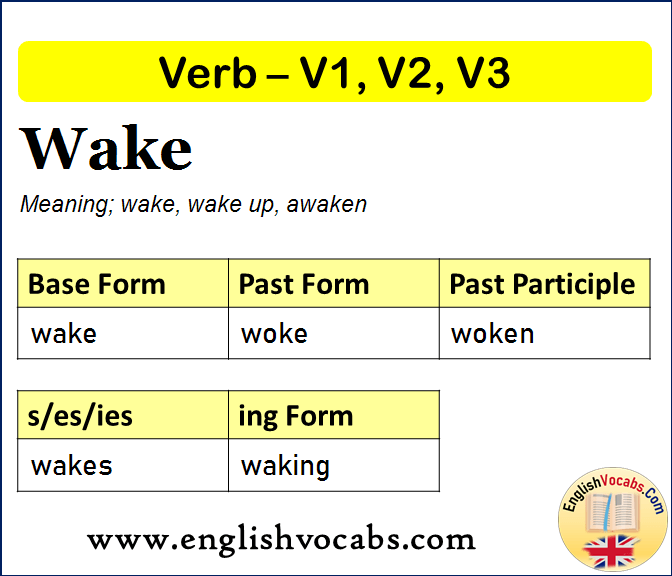
Wake Past Simple, Past Participle, V1 V2 V3 Form of Wake English Vocabs
Conjugation verb wake X English Conjugate Toolbox: Models British vs. American English Auxiliaries, modals Irregular verbs wake Infinitive to wake Preterite woke/waked Past participle woken/waked Model : awake Auxiliary : have, be Other forms: wake oneself / not wake Contractions Advertising Indicative Present I wake you wake he/she/it wakes